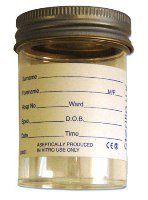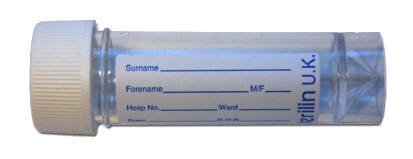Mycobacterium and TB investigations (afb aafb mycobacteria tuberculosis ntm)
Microbiology
Notes
The information given here is intended for use by healthcare professionals. Please see Lab Tests Online-UK for more general advice, links and background.
- All pleural fluids are routinely examined for Mycobacteria
- Mycobacteria investigations may also be requested on the following samples:
- Sputum
- Bronchoalveolar lavage (BAL)
- CSF
- Urine
- Tissues and biopsies
- Pus
- Bone marrow culture for Mycobacteria can be arranged. Contact the laboratory for further information.
- Blood culture for Mycobacteria is available after discussion with a consultant microbiologist
- All Mycobacterial isolates are referred to a National Centre for identification, sensitivity testing and typing
- Some sample types may be heavily contaminated with other bacteria which may inhibit the successful culture of Mycobacteria. These will be reported as contaminated samples and a repeat sample requested.
- Urgent microscopy for Mycobacteria is available after discussion with a consultant microbiologist
- The standard Mycobacterial culture period is 6 weeks, but in certain cases culture may be extended to 12 weeks
- See also:
Sample requirements

Sputum
Sputum specimens should be relatively fresh (less than 1 day old) to minimise contamination. Purulent specimens are best.
Three samples of ≥ 5mL should be collected approximately 8-24 hours apart with at least one from early morning. Samples taken early morning (i.e. shortly after patient waking) have the greatest yield.
When the cough is dry, physiotherapy, postural drainage or inhalation of nebulised saline (‘sputum induction’) before expectoration may be helpful.
Expectorate sample directly into the container. Saliva and pernasal secretions are not suitable.

Urine
30 mL sterile universal container
Collect a mid stream early morning urine sample on three consecutive days
Use a separate container each day
Other samples
As stated on relevant sample page.
Required information
- Past history of Mycobacterial infection
- Travel history
- Occupational risks
- Immunocompromised
- Contact with known or suspected cases
Storage/transport
Specimens should be transported and processed as soon as possible.
If processing is delayed, refrigeration is preferable to storage at ambient temperature.
Turnaround time
Urgent microscopy for AFB is available within 24 hours
Routine culture up to 6 weeks
Extended culture up to 12 weeks
Identification, sensitivity testing and typing results may take considerably longer